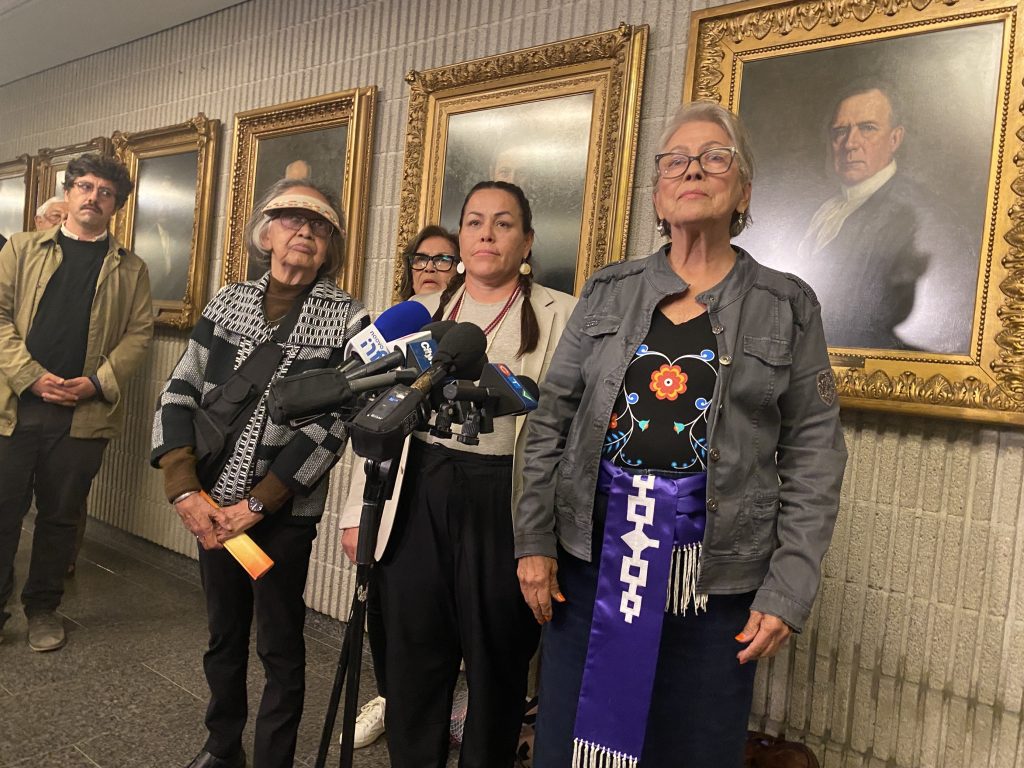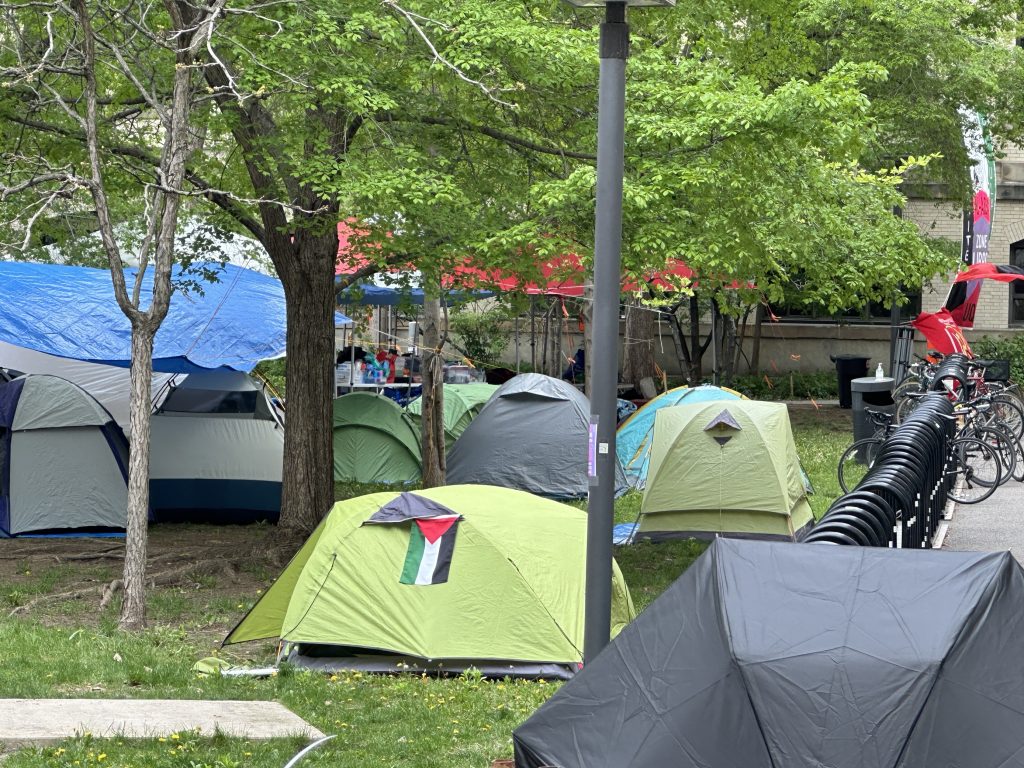Mohawk Mothers seek halt to excavation amid grave search at former Montreal hospital
Posted September 14, 2023 1:44 pm.
Last Updated September 14, 2023 6:54 pm.
A group of Indigenous elders known as the Mohawk Mothers were in court today to stop drilling and excavation at the site of a former Montreal hospital where they think unmarked graves may be located.
Their motion seeks to stop work that began Monday at the construction site, managed by McGill University and Quebec’s infrastructure agency.
The judge today wasn’t able to grant a safeguard or an injunction – but plans to render a decision early next week.
“I want to see that the excavation is halted, until we can properly process this information and give it in the right hands, where they can make a proper assessment of what is there and what the next steps to go forward are in this mapping process,” said Kwetiio, a member of the Mohawk Mothers, after the hearing.
“The main argument was that it was not professionals, that were taking, that it was not the experts that were taking the information from the techniques that were done and that’s a major part that all comes from them disbanding the panel., they didn’t want to take the panels recommendations, which was in the settlement agreement,” explained Kwetiio.
The Mothers obtained a Superior Court injunction in April that permitted a search for unmarked graves of Indigenous patients buried in and around the old grounds of Royal Victoria Hospital, which McGill is renovating to expand its campus.
They are raising concerns that an archeological dig ordered by the court isn’t being handled properly.
The Mothers say they have uncovered evidence of graves following interviews with survivors of mind-control experiments that took place in the 1950s and 1960s at a psychiatric institute affiliated with the hospital.
“It was a mutual understating that this panel would be guiding us with their expertise, but when it came to Indigenous-led, we were, it was far from that because contracts were made without our our knowledge put within those contracts. There was even a statement from one of the technicians when asked, ‘So are we going to get this information next?’ And they said, ‘My loyalty lies with who pays me.’ And that’s really, so we wouldn’t be able to get it if it continued to go in that manner,” said Kwetiio.

Members of the Kanien’kehá:ka Kahnistensera, speaking after a court hearing with the Mohawk Mothers group on Sept. 14, 2023 in Montreal. (CREDIT: Alyssia Rubertucci, CityNews Image)
The government of Canada is named in a 2019 class-action lawsuit application that alleges the state funded the MK-ULTRA program, under which abusive psychological experiments were conducted on vulnerable patients.
McGill, SQI say they’re following agreement
McGill University and the infrastructure agency told media this week that they are committed to following the April court order, which forced all sides to agree that an Indigenous-led plan had to be followed before construction could proceed.
CityNews spoke to Prof. Angela Campbell, the Associate Provost for Equity and Academic Policies at McGill University, on Thursday before the court hearing.
“The work that is happening now flows from an agreement that was reached among the parties early last April, so there were several parties to the agreement and those parties include McGill, the SQI and the Mohawk Mothers,” she said. “The agreement set the requirement that there be an independent panel appointed to recommend techniques that would be archeological techniques that would be followed to ensure that work was done archeologically to ensure that the site is not that of human remains or unmarked burials.
“The question is whether or not the site of the former Royal Victoria Hospital is a site of unmarked burials,” he added.
“So the recommendations of the panel as to techniques to carrying out that work that’s required to assess the question of whether or not the site is the site of unmarked burials. So since the agreement was put in place, the panel did its work, it gave a report, it issued recommendations. Those recommendations have been followed. And so there’s been work at the site that’s archeological in nature and there’s also been some other work that’s in alignment with the agreement that was reached last April.”
The agreement stipulates that if no graves are immediately found then excavation work can begin on a rolling basis and in a sensitive manner in case there is an unexpected discovery.
The Société québécoise des infrastructures (SQI) tells CityNews in a statement:
“It is imperative to reaffirm the desire of all project partners to shed light on allegations of the presence of possible graves. The SQI and its partners are committed, in good faith and rigorously, to carrying out archaeological research in the company of experts in the field. […] It was agreed that Indigenous cultural monitors appointed by the Mohawk Mothers could be present during the execution of archaeological techniques. They can visit the site at any time to monitor the archaeological work or the protocols concerning the ceremonies. As such, and contrary to the latest allegations, arrangements have been made on the site to ensure the safety of cultural instructors. [There was] the creation of a secure corridor to allow them to move around.
“This additional security measure was put in place during drilling work carried out on Sept. 11 which aimed to assess the depth of the rock. This intervention was carried out under the supervision of archaeologists; it is also the only technique required by the Archaeologist Panel for this sector and it was therefore respected.
[…] Despite the research carried out in all areas of interest identified in the archaeological research plan, and the different stages thereof: georadar, sniffer dogs, local excavations carried out manually and analyzes carried out at each stage: to date, there is nothing to confirm or deny the presence of graves.”
This report by The Canadian Press was first published Sept. 14, 2023.



